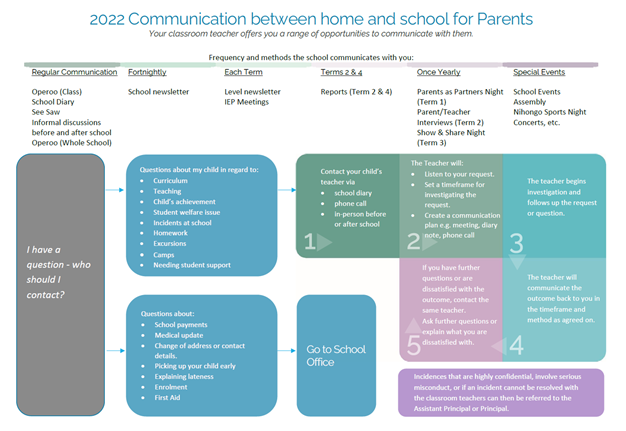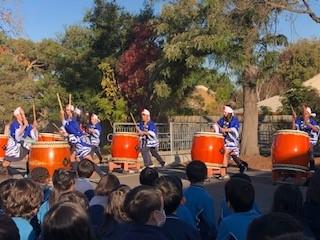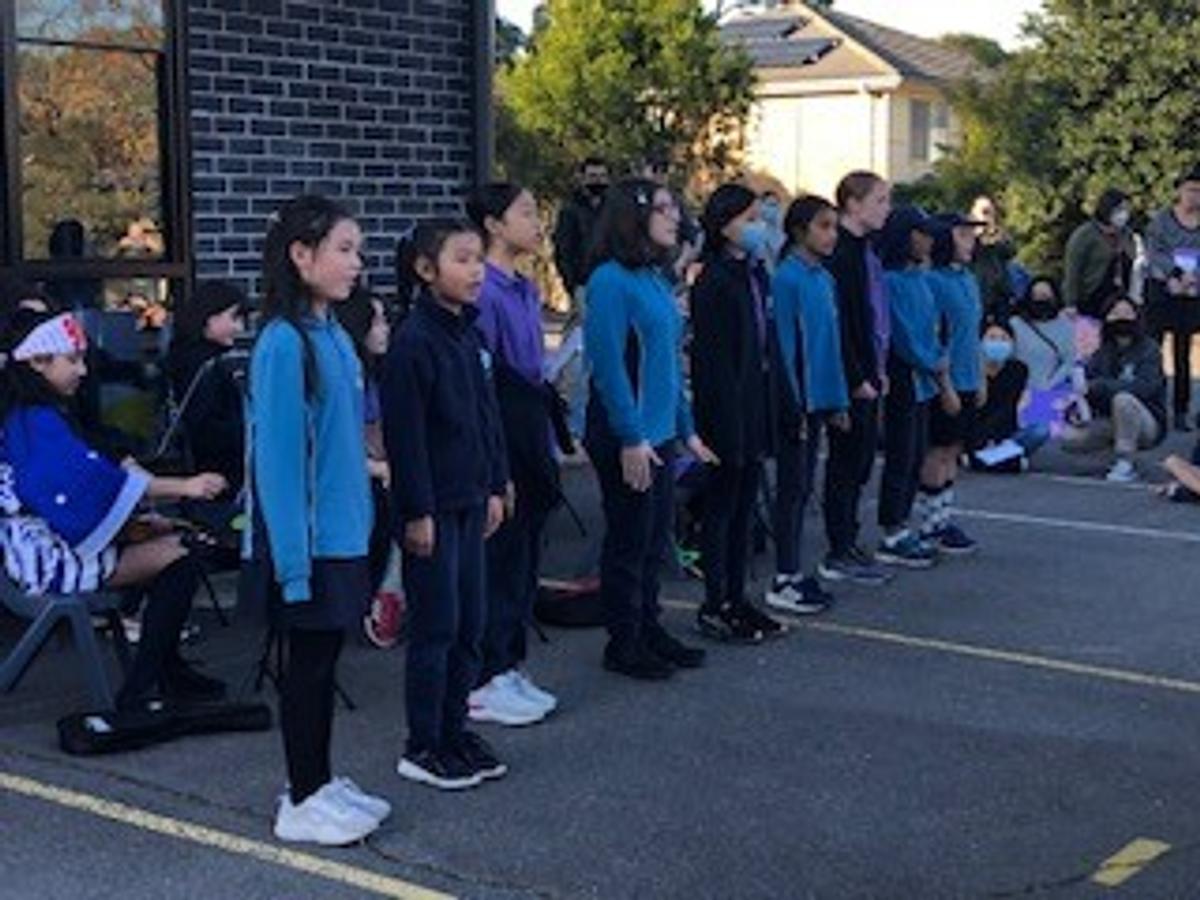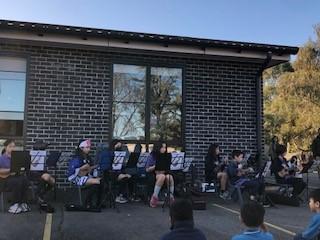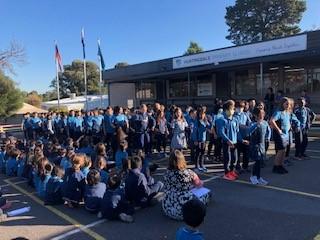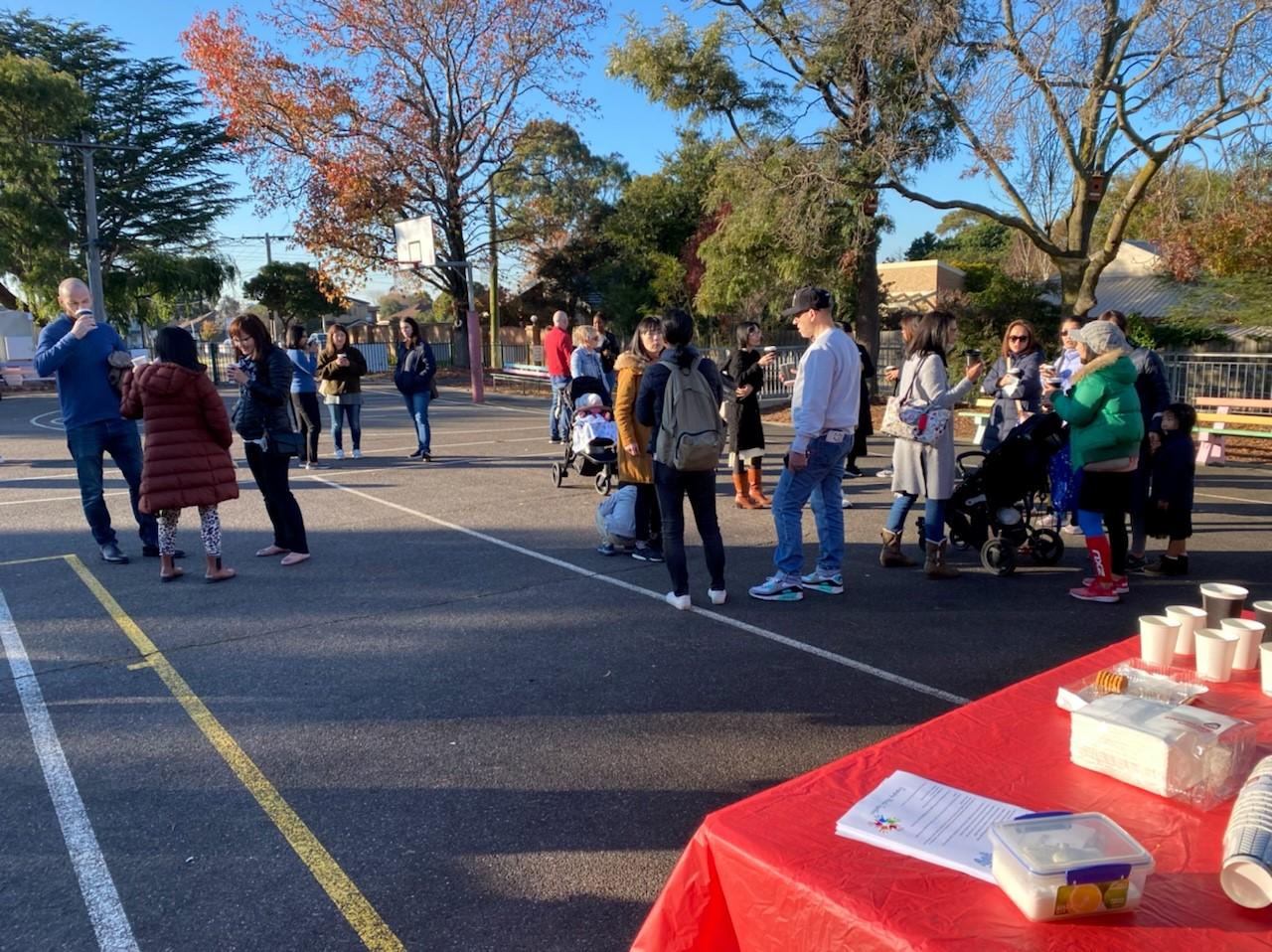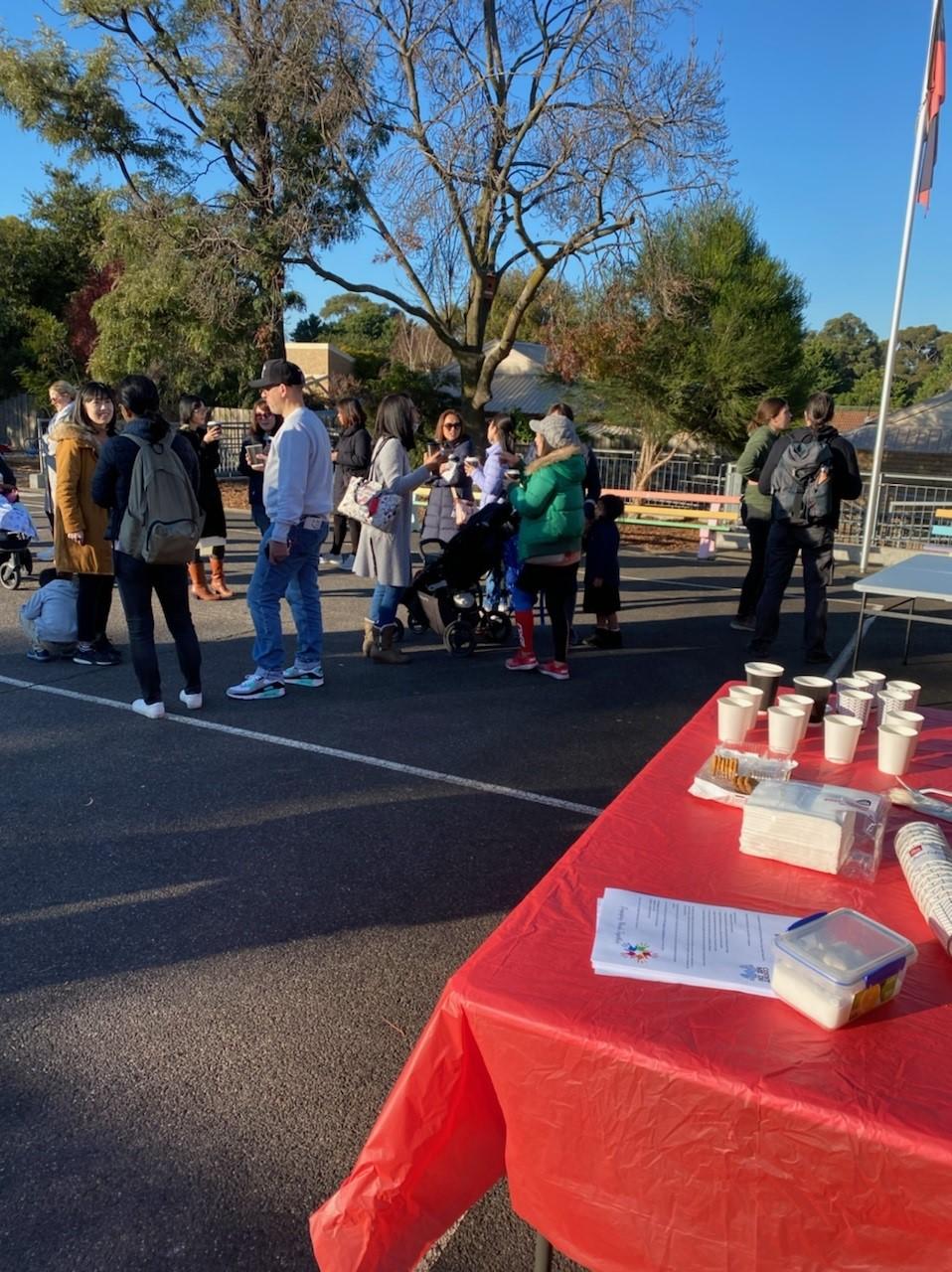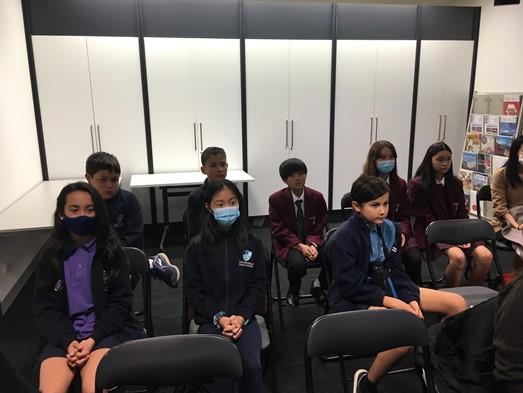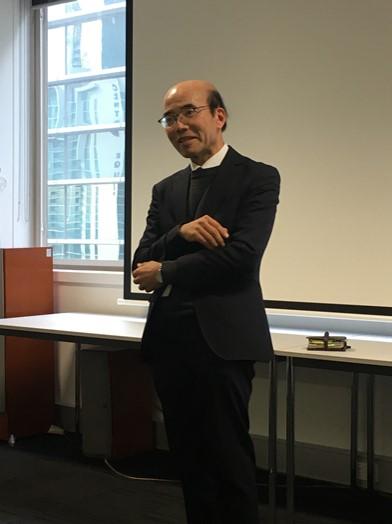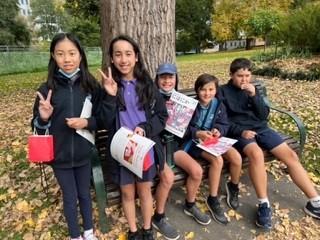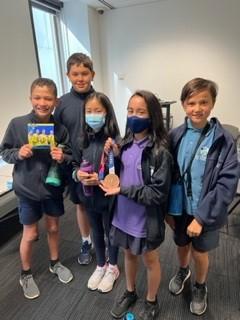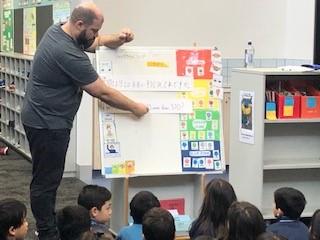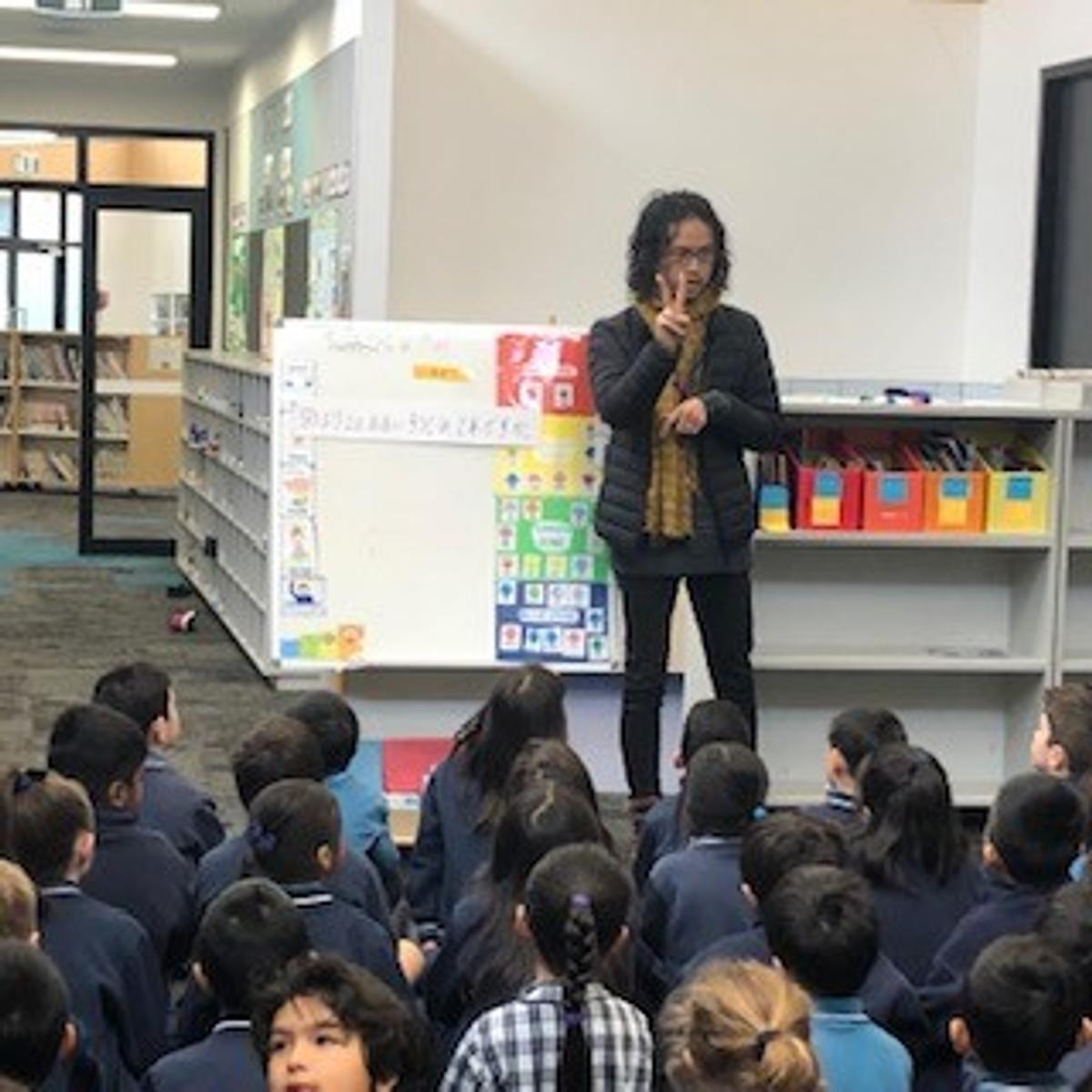Principal and Assistant Principal's Page

Principal's Report
Cross Country Results
On 17 May, our year 3-6 cross country team participated in the district event at Norton’s Reserve. We are proud to announce the following results:
- Overall 1st based on handicap (school size and results combined)
- 1st Kenji- boys under 12
- 1st Daisy- girls under 11
- 1st Cassie- girls under 12
- 2nd- Alannah-girls under 10
- 2nd Aiden- boys under 10
- 2nd Momoka- 11 girls
- Overall 2nd in the schools that participated (without handicap taken into account)
The following students move to the division level to compete: Kenji, Daisy, Cassie, Alannah, Momoka, Aiden, Leo, Marilyn, Vicky, Kenny, Emily, Mars, Aditiya, Jamie, Eita, Leo, Luka, Ruby and Alezia.
We wish them all the best.
Thank you to our wonderful parents and teachers for supporting the students on the day.
Influenza in schools
DET has asked me to inform you about the impact of influenza (flu) among school communities and measures we can all take to reduce the spread of flu as we enter into the colder months. The school continues to follow the expert advice of the Department of Education and Training and Department of Health, to help ensure that our school continues to run effectively.
To help protect our school and the wider community, we ask that unwell students stay home.
To help reduce the spread of flu, colds and COVID-19, students are being encouraged to;
- wash and sanitise their hands regularly
- avoid touching their eyes, nose, and mouth with unwashed hands
- cover their nose and mouth when they cough or sneeze
- get tested for COVID-19 if they feel unwell and follow the current Department of Health isolation requirements if a positive result is shown
- if unwell, stay at home until their symptoms pass.
Face masks are available at school and can be worn by any staff or students who wish to do so, especially those who are medically at risk.
Vaccination remains the best protection against both COVID-19 and flu, and we encourage you to get your child vaccinated. Flu vaccinations can be booked through GPs and pharmacies, many of which can also provide COVID-19 vaccinations.
Please see the letter from the Royal Australian College of General Practitioners, Victoria Faculty Council Chair, about the importance of protecting your children and family.
If your child does become sick while at school, please also ensure that we have correct emergency contact details for yourself. This is so we can get hold of you as quickly as possible.
We are aware that this is a challenging situation and we thank you for your understanding and support at this time.
Congratulations Zalia!
Zalia has been selected as one of the Australian students to take part in the Asia Pacific Children's Conference. She is set to attend the event virtually on Sundays in July and August with students from 15 other countries in our region.
We look forward to hearing about the experience.
COVID-19 Update
Rapid Antigen Tests (RATs) will continue to be distributed for the remainder of this term.
From Monday 23 May 2022, students will no longer be recommended to undertake twice weekly RATs.
RATs will continue to be required by students who are household contacts to attend school (5 negative tests over a 7-day period) or who have symptoms.
The ongoing supply of RATs to families will ensure that parents and carers will have them should they need them if their child is a household contact or has symptoms.
Families must continue to notify the Department of Health and the school if their child returns a positive RAT result. Additionally, you should inform us if any of your children are household contacts.
Communication at School
We pride ourselves in having many avenues of communication at the school. In the front of your child’s diary (and clicking the link below) there is a communication matrix to show who you should contact for different questions and concerns. We ask that all parents look at this matrix carefully.
In many instances parents first point of call is their child’s classroom teacher who can assist with giving you information about support for your child, following up on an incident that has happened at school or homework. You can also use See Saw to message teachers.
We ask that all are parents are connected to the school communication tool ‘Operoo’ and have the push notifications turned on. This allows you to be notified when new information comes from the school. Operoo is also the tool parents must use to inform us of an absence and to complete permission forms for school excursions. If you have any difficulties with Operoo, please see Gill or Rosella at the office.
New Child Safe Standards
The Victorian Government has announced new Child Safe Standards to further strengthen child safety across organisations, including schools. The new standards recognise the critical importance of families and the broader school community in maintaining and promoting child safety and wellbeing.
We are committed to continuous improvement in our approach to child safety and wellbeing and welcome feedback from families and members of our school community on ways we can further strengthen our child safety policies, procedures and practices.
During this term, the school will be reviewing and updating a number of our policies and procedures to ensure they meet the requirements of the new standards and will ask for feedback.
Bullying
The term ‘bullying’ is used regularly in the context of schools. Bullying is a serious issue for everyone in the school community. It can happen anywhere, anytime, and can have devastating effects. It is the responsibility of everyone to make a stand and lend a hand to prevent and respond to bullying behaviour.
Bullying is repeated verbal, physical, social or psychological aggressive behaviour by a person or group directed towards a less powerful person or group that is intended to cause harm, distress or fear.
Types of bullying behaviour
There are some specific types of bullying behaviour:
- verbal or written abuse - such as targeted name-calling or jokes, or displaying offensive posters
- violence - including threats of violence
- sexual harassment - unwelcome or unreciprocated conduct of a sexual nature, which could reasonably be expected to cause offence, humiliation or intimidation
- homophobia and other hostile behaviour towards students relating to gender and sexuality
- discrimination including racial discrimination - treating people differently because of their identity
- cyberbullying - either online or via mobile phone.
What is not bullying?
There are also some behaviours, which, although they might be unpleasant or distressing, are not bullying:
- mutual conflict - which involves a disagreement, but not an imbalance of power. Unresolved mutual conflict can develop into bullying if one of the parties targets the other repeatedly in retaliation.
- single-episode acts of nastiness or physical aggression, or aggression directed towards many different people, is not bullying
- social rejection or dislike is not bullying unless it involves deliberate and repeated attempts to cause distress, exclude or create dislike by others
Source- Department of Education and Training- Bully Stoppers
http://www.education.vic.gov.au/about/programs/bullystoppers/Pages/what.aspx
There are several things we can do:
- Ensure that we are using the term ‘bullying’ correctly. Often parents will use the term broadly about every incident that happens between children at school. This then leads to misuse of children and a misunderstanding of what bullying is.
Over the last 12 months during the pandemic, there have been less opportunities for students to interact face to face with one another and to practice their social skills, particularly younger children. This has led to some inappropriate interaction that do not constitute as bullying. Young children in particular are still learning to develop social skills and they make mistakes in their journey as they learn.
- Empowering children to have the ability to speak up- not just about bullying but other issues as well.
As part of our Creating Our Learning Community unit of work students complete the ‘helping hand’ activity. On each finger on the hand, students write a trusted person they can talk to at school if they need to.
Parents are also encourage to discuss at home with their child how to create a helping hand for home. This could include the names of their parents, relatives or family friends that can help your child.
What can you do to support your child if they feel they are being bullied?
- Encourage and empower your child to ‘speak up’ about the incidences that have happened.
- Go and talk to the classroom teacher- They can be the first ‘port of call’ to investigate. If needed the classroom teacher may ask for support from the Assistant Principal to be involved in the investigating process.
- Offer your child support- take regular time to talk to them about how school is going and listen to them.
- Continue and maintain regular contact with the school- so we are all on the ‘same page’ and are monitoring the situation effectively.
- Get extra help if needed-Sometimes children need the support of an independent person such as a counsellor. A range of services are available both internally and externally from the school.
- Help your child to ‘move forward’- an important part of the process is to allow your child to reflect on what has happened, talk about it and then have the capacity to move on from the incident, so they can continue to come to school, see their friends and enjoy school life.
The school has a duty of care to assist both the victims and perpetrators of bullying. Often there is an underlying cause for bullying behaviours. Sometimes the perpetrator has been bullied themselves or they are stressed about other aspects of their life. The school uses the ‘Play is the Way’ framework with students and is beginning the process of the 3R’s- reflection, repair and restitution to help empower all children in dealing with difficult situations.
If you have any questions about bullying, please come and see Assistant Principal Naomi Mori-Hanazono or your child’s teacher.
Education Week
What a fabulous celebration we had on Monday to launch Education Week! The performances from the Year 3 & 4’s, the ukulele group, senior choir and taiko group were wonderful. Such a showcase of the wonderful learning opportunities we have at our school.
As part of my speech at assembly, I shared that this is an extra special Education Week, as we are celebrating 150 years of public-school education.
When Victoria made education free and compulsory to all children aged 6-16 under the 1872 Education Act, it was the first of its kind in the world and the first in the Australian colonies and designed to benefit the whole community.
Around 600 schools opened across the state in the five years following the passing of the Education Act. Victoria’s oldest school - which is still in operation today - is Bacchus Marsh Primary School.
At Huntingdale Primary School we have a proud history. The school was opened in 1954 and was built on the land of the Wurundjeri people of the Kulin Nation and is now in its 68th year of operation. The school has had a long and proud history- from being a larger school in the 70’s and 80’s, shrinking to 92 students in 1997 and facing closure, a devastating fire in 1996, to the introduction of bilingual learning in 1997, the steady increase in numbers over the last 20 years, celebration of 60 years opening in 2014, the reintroduction of a Parents Association Watashi Mo, to the building of a new Junior wing and educating many students along the way.
Several of our families and teachers have had their parents, aunts, uncles and siblings attend the school. It’s this history that builds connections and community at this school and makes Huntingdale a truly fantastic place to be educated.
During the same assembly I also shared that the School Council put forward a nomination for the Victorian Excellence in Education Awards. This year we have nominated our bilingual education support team and this is part of the application we wrote:
To assist in the implementation of our high quality and renowned bilingual education, our Education Support Team have capably made Japanese resources such as posters, games and books to use in the bilingual learning environment. In classrooms they have worked with small groups of students to provide extension or remediation in Japanese literacy and worked 1:1 to tutor students new to Japanese learning.
Their work in providing support for the range of students has been outstanding. They have been committed to undertake professional development, implement different strategies to ensure academic success and inclusion, helped with the bilingual reading program and Lego Therapy in the school, making a positive impact on student learning and wellbeing.
Our team are committed to communicating and working with families in partnership and build the community that is Huntingdale Primary School ‘engaging minds together’.
We will find out next term if our team have been shortlisted for the award.
Basketball Clinics
This term we have BMBA Group running basketball clinics in our PE sessions for F-6 for 4 weeks.
Students are learning the different skills associated with basketball including dribbling, passing, defence and shooting. BMBA run a host of different coaching and clinic options. There is information further on in the newsletter.
National Sorry Day
Observed annually on 26 May, National Sorry Day remembers and acknowledges the mistreatment of Aboriginal and Torres Strait Islander people who were forcibly removed from their families and communities, which we now know as ‘The Stolen Generations’.
National Sorry Day is a day to acknowledge the strength of Stolen Generations Survivors and reflect on how we can all play a part in the healing process for our people and nation. While this date carries great significance for the Stolen Generations and other Aboriginal and Torres Strait Islander peoples, it is also commemorated by Australians right around the country.
The first National Sorry Day was held on 26 May 1998, one year after the Bringing Them Home report was tabled in Parliament. The Bringing Them Home report is a result of a Government Inquiry into the past policies which caused children to be removed from their families and communities in the 20th century.
Following this, in 2000, there was one issue that was high on the agenda at the Sydney Harbour Bridge walk for reconciliation – an apology to the Stolen Generations.
It was also high in the sky, when a group of people – independent to the organisation of the walk – had the word ‘Sorry’ written in the clear blue skies above the Sydney Harbour Bridge.
Such was the intensity of feeling and support for Stolen Generations members – many of whom were among the huge crowd that day.
Kevin Rudd issued a formal apology on behalf of the government and people when he was prime minister, on 13 February 2008.
National Reconciliation Week
The National Reconciliation Week 2022 theme, “Be Brave. Make Change.” is a challenge to all Australians - individuals, families, communities, organisations and government - to Be Brave and tackle the unfinished business of reconciliation so we can Make Change for the benefit of all Australians.National Reconciliation Week - 27 May to 3 June - is a time for all Australians to learn about our shared histories, cultures, and achievements, and to explore how each of us can contribute to achieving reconciliation in Australia.Reconciliation is an ongoing journey that reminds us that while generations of Australians have fought hard for meaningful changes, future gains are likely to take just as much, if not more, effort.
Have a great fortnight!
Ruth Biddle
Principal
Assistant Principal's report
I hope you are well and that you are staying safe and warm. It is clear that the winter season is upon us, with the crisp morning air and the short hours of sunlight. There is nothing more lovely than being rugged up with a hot cuppa. We please ask that students come to school dressed appropriately for the season. The weather is noticeably cooler and we want to make sure that all of our community stay safe and warm whilst at HPS.
Education Week
What a busy Education Week!
We had the Special Children’s Assembly on Monday 23rd. Grade 3 and 4 students performed “The Algorithm Exercise”. An algorithm is a movement that is meaningless for one person in the first place, but it is related when two people are side by side. They practiced a lot with Shoya sensei in the music lesson, and they didn’t crush each other while they sang in Japanese. Well Done! The Senior Choir, Ukulele Club and Taiko Group performed well. We are so proud of their talent in our school community.
Open Morning
We had our Open Day on Tuesday 24th. Thank you so much for Watashi Mo for hosting our parent’s morning tea. It was so nice to see so many parents come along and get together to chat.
I was taking the school tour for the prospective parents and it was good to hear our current parents’ feedback about our school.
Visit to the Consulate-General of Japan in Melbourne
Miss Biddle, Nishikubo sensei and myself took 5 students (Scarlet, Hideki, Leila, Luka and Oliver) to the Consulate-General of Japan in Melbourne as part of the Oakleigh Education Plan. Mr Ishida (Vice Consul) talked about what kind of work the Consulate General does: Job description, motivation for joining the ministry and how to study English.
Mr Junji Shimada (Consul-General) talked about the importance of the work of the Consulate-General, the reason for entering the ministry, the importance of language learning.
Then we saw the exhibition of “Memories of Tokyo 2020”. Items of display included a bronze medal, certificate, official memorabilia and more, provided by Matthew Temple who came third in the Men’s 4*100m Medley Relay and the Men’s 4*100m Freestyle Relay at Tokyo 2020. The exhibition featured a bronze medal from Tokyo 1964 Olympic Games-provided by Peter Doak who won bronze in the Men’s 4*100m Freestyle Relay.
Joint session in Grade 1 and 2
Grade 1 and 2 had a joint session focus on quantity language. The learning goal was the students can highlight/underline the key quantity words (fewest, least, more, less, greater than, most, smallest, largest, how many) in a written sentence and explain what that word means. English classroom teachers and Japanese classroom teachers taught together to identify what is the similarity and difference between Japanese and English. Students engaged really well with the teacher’s role play and enjoyed the group activity to match the quantity words between English and Japanese. It was a really meaningful session for students to connect the language especially for math language in the context.
Reminders…School Uniform
All students are also required to wear a Huntingdale uniform, hat and school bag.
We are aiming to build school pride with our students. This includes pride in our learning and achievements, but also in the way we present ourselves. As per our School Dress Code Policy we ask that:
- Students wear appropriate footwear for school activities, e.g. runners for sport, preferably in black. White or navy socks should be worn only.
- Any accessories such as tights, scarves, beanies, bike shorts be navy blue. Students will be asked to remove any accessories that are not in school colours.
- During art/craft activities, that children will wear protective clothing.
- Jewellery such as dangling earrings, necklaces are not to be worn due to safety concerns. Studs and sleeper earrings are acceptable.
- Makeup is not to be worn, except when part of a school performance or dress up event.
- Fingernails should be without nail polish, natural and of a practical length.
- Hair be well groomed, of natural colour, tied back and off the face with accessories in the school colours of teal blue, navy or white.
We understand that from time to time keeping up with washing can be difficult. If your child is not in school uniform for a day, please write a note in your child’s diary.
Parents can view the full Student Dress Code Policy on our website.
Please make sure you will write child’s name on their items, so it can be returned to owners.
Naomi Mori-Hanazono
Assistant Principal

